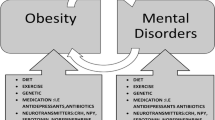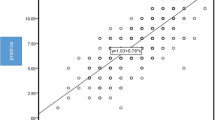Abstract
The scourge of diabetes has been increasing worldwide with a tendency to double, from 176 to 370 million people by 2030 according to WHO prediction. In Nigeria, only 20 % of the 3.2 million estimated to have diabetes are aware of it. Among those already diagnosed, about 50 % have poor glycaemic control attributable to poor diabetes self-management despite effective medication. Diabetes self-management in addition to medical therapy, lifestyle modification and education are key to the management of diabetes. This study aims to determine the knowledge, psychosocial impact and attitude of people with diabetes to diabetes with a view to make recommendations for a more encompassing patient-based management of diabetes. A cross-sectional study using a structured questionnaire in the endocrinology clinic of the Federal Medical Centre, Owerri, interviewed 104 consecutive newly diagnosed patients with diabetes who willingly consented to the study. One hundred and four patients with an equal male to female ratio were interviewed. The 41–60-year (78.8 %) age group and traders (66.3 %) constituted the greatest number. Majority (58.7 %) heard of diabetes prior to their diagnosis, but many (41.3 %) did not. This knowledge was significantly associated with occupation (0.022). Many (84.6 %) were willing to disclose diagnosis to family and friends as well as join a support group (61.5 %). But, the major reason for this inclination was wrong. Many never heard of diabetes prior to their diagnosis. In spite of being aware, a diagnosis of diabetes is associated with different emotional responses and attitudes including willingness to disclose their diagnosis and get support. Appropriate treatment based on current medical knowledge, self-management education and development of diabetic support groups is recommended.


Similar content being viewed by others
References
Wild S, Roglic G, Green A, Sicree R, King H. Global prevalence of diabetes: estimates for the year 2000 and projections for 2030. Diabetes Care. 2004;27:1047–53.
Oputa RN. National diabetes screening programmes. Diabetes Int. 2009;17(1):9–11.
World Health Organization: Diabetes: total number of people with diabetes [article online].Available online at www.who.int/ncd/dia/databases4.htm
Kristensen JK, Bro F, Sandbaek A, Dahler-Eriksen K, Lassen JF, Lauritzen T. HbAlc in an unselected population of 4438 people with type2 diabetes in a Danish county. Scand J Prim Health Care. 2001;19:241–6.
Cramer JA. A systematic review of adherence with medications for diabetes. Diabetes Care. 2004;27:1218–24.
World Health Organization. Adherence to Long-term Therapies. Geneva: World Health Org; 2003.
Mosaku K, Kolawole B, Mume C, Ikem R. Depression, anxiety and quality of life among diabetic patients: a comparative study. J Natl Med Assoc. 2008;100:73–8.
Hermans N, Kulzer B, Krichbaum M, Kubiak T, Haak T. How to screen for depression and emotional problems in patients with diabetes: Comparison of screening characteristics of depression questionnaires, measurement of diabetes-specific emotional problems and standard clinical assessment. Diabet Med. 2005;22:293–300.
Holman RR, Paul SK, Bethel MA, Matthews DR, Neil HH. 10 year follow up of intensive glucose control in type 2 diabetes. N Engl J Med. 2008;359:1577–89.
Johnson ST, Bell GJ, MCcargar LJ, Welsh RS, Bell RC. Improved cardiovascular health following a progressive walking and dietary intervention for type 2 diabetes. Diabetes Obes Metab. 2009;11:836–43.
Gutschall MP, Miller CK, Mitchell DC, Lawrence FR. A randomized behavioral trial targeting glycemic index improves dietary, weight and metabolic outcomes in patient with type 2 diabetes. Public Health Nutr. 2009;23:1–9.
Baradran HR, Knill-Jones RP, Wallia S, Rodgers A. A controlled trial of the effectiveness of a diabetes education programme in a multiethnic community in Glasgow. BMC Public Health. 2006;6:134.
Peyrot M, Rubin RR, Funnell MM, Siminerio LM. Access to diabetes self management education; Results of national surveys of patients, educators and physicians. Diabetes Educ. 2009;35(2):246–8. 252–6, 258–63.
Moodley LM, Rambiritch V. An assessment of the level of knowledge about diabetes mellitus among diabetic patients in a primary healthcare setting. SA Fam Pract. 2007;49(10):16.
Okolie VU, Ehiemere OI, Iheanacho NP, Kalu-Igwe IN. Knowledge of diabetes management and control by diabetic patients at Federal Medical Center Umuahia Abia State, Nigeria. Int J Med Med Sci. 2009;1(9):353–8.
Shera AS, Jawad F, Basit A. Diabetes related knowledge, attitude and practices of family physicians in Pakistan. J Pak Med Assoc. 2002;52:465–70.
American diabetes association. Standards of Medical care in Diabetes. Diabetes Care. 2009;32(1):S13–61.
Rapaport WS, Taylor Cohen R, Riddle MC, Diabetes Through the Life Span: Psychological Ramifications for Patients and Professionals Diabetes SpectrumVolume 13 Number 4, 2000, Page 201
IDF Diabetes atlas. 2011. 5th Edition pg 23, 45–48.
World Health Organisation. Prevention of Diabetes Mellitus. Report of a WHO study Group. 844th ed. Geneva: World Health Organisation; 1994.
Nwaokoro JC, Okokon BE, Nwaokoro AA, Emerole CO, Ibe SNO, Onwuliri VA, et al. Problems associated with treatment compliance among Type 2 Diabetes patients at a Tertiary Health Institution in Nigeria. Afr J Diabetes Med. 2014;1(2):24–6.
Gul N. Knowledge Attitudes and Practices of Type 2 Diabetic Patients. J Ayub Med Coll Abbottabad 2010;22(3)
Anderson RJ, Freedland KE, Clouse RE, Lustman PJ. The prevalence of comorbid depressionin adults with diabetes: a meta-analysis. Diabetes Care. 2001;24:1069–78.
24. Soren E. Skovlund, Peyrot M. The Diabetes Attitudes, Wishes, and Needs (DAWN) Program:A New Approach to Improving Outcomes of Diabetes Care. Diabetes Spectrum 2005.Volume 18:3.
Gary TL, Gonkinger JM, Gualler E, Peyrot M, Bromcarti E. Metaanalysis of randomized educational and behavioural interventions in Type 2 Diabetes. Diabetes Edu. 2003;29:488–501.
Renders CM, Ejikvan JT, Volk JJ, et al. Intervention to improve the management of diabetes in primary care, outpatient and community settings: a systematic review. Diabetes Care. 2001;24:1821–33.
American Diabetes Association. Standards of Medical Care in Diabetes—2013. Diabetes Care. 2013;36(1):S11–66.
Martin AL. Changes and consistencies in diabetes education over 5 years: results of the 2010 National Diabetes education Practice Survey. Diabetes Educ. 2012;38:35–46.
Boren SA, Fitzner KA, Pamhalker PS, Specker JE. Costs and benefits associated with diabetes education: a review of the literature. Diabetes Educ. 2009;35:72–96.
Norris SL, Nichols PJ, Caspersen CJ, Glasgow RE, Engelgau MM, Jack L, et al. The effectiveness of disease and case management for people with diabetes: a systematic review. Am J Prev Med. 2002;22:15–38.
Conflicts of interest
None
Author information
Authors and Affiliations
Corresponding author
Rights and permissions
About this article
Cite this article
Achigbu, E.O., Oputa, R.N., Achigbu, K.I. et al. Diabetes: knowledge, psychosocial impact, and attitude of patients. Int J Diabetes Dev Ctries 35 (Suppl 2), 253–257 (2015). https://doi.org/10.1007/s13410-015-0368-2
Received:
Accepted:
Published:
Issue Date:
DOI: https://doi.org/10.1007/s13410-015-0368-2




